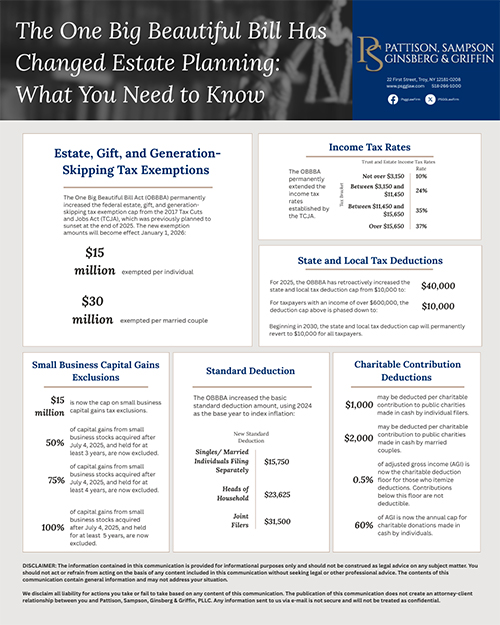The One Big Beautiful Bill Act
Published on Tuesday, August 12, 2025
The One Big Beautiful Bill Act is a comprehensive spending and tax bill that was signed into law on July 4th, 2025. Attached is a high-level overview of the provisions within the recently passed One Big Beautiful Bill Act that will have a direct and indirect impact on estate planning. The following topics are included in the graphic: the permanent increase of the estate, gift, and generation-skipping tax exemption cap; the permanent extension of the current income tax rates for trusts and estates; the retroactive increase of the state and local tax deduction cap; the increase in the small business capital gains tax exclusion cap; the increase in the basic standard tax deduction amount; the increase in the deduction cap for charitable contributions. Each topic box lists the most relevant figures that have been affected by the passage of the One Big Beautiful Bill Act.
(Click Image To Enlarge)

For more information on how your estate plan may be affected, or for information on how to plan your estate amidst the recent changes, contact Pattison, Sampson, Ginsberg & Griffin, PLLC at 518-266-1000.
